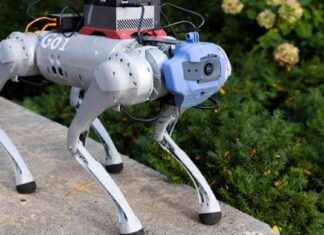The Bundeswehr is scheduled to withdraw from Mali by 2024. However, this could have a negative impact on the security situation in neighboring Niger. In the fight against militant Islamists, Germany agrees to help – an EU project that is worthwhile.
Germany will play a key role in an EU mission in Niger, West Africa. During a visit to the country’s capital Niamey, Federal Defense Minister Christine Lambrecht emphasized: “We will not leave the Sahel alone.” With a view to the mission to stabilize the country decided by the EU foreign ministers, the SPD politician said: “Germany will participate substantially.” The minister did not give a specific number.
According to the EU plans, up to 300 soldiers are to be deployed. The air transport base is already being expanded and could develop into a central hub for further engagement in view of the planned withdrawal of the German armed forces from Mali by 2024.
As part of the cooperation, Germany wants to help build a military hospital in Niger that will also be open to the civilian population, Lambrecht said. The EU wants to provide Niger with more military support in defending itself against terrorist groups and in protecting its own population, thereby stabilizing the Sahel region. An important step, because as one of the poorest countries in the world, the democratically governed country of Niger runs the risk of being infected by the instability in neighboring Mali.
Mali, where the Bundeswehr is to be deployed with around 1,100 soldiers until May 2024 as part of the UN order Minusma, is being increasingly destabilized by radical Islamic groups. The country of 20 million people has experienced three military coups since 2012 – two alone followed each other in 2020 and 2021. According to the interim government, there will be presidential elections in February 2024.
Support for Niger, on the other hand, would have paid off “in the fight against the jihadists – the country has recorded significantly fewer violent attacks than its neighbors Mali and Burkina Faso,” says Ulf Laessing, head of the Sahel program at the CDU-affiliated Konrad Adenauer Foundation.







